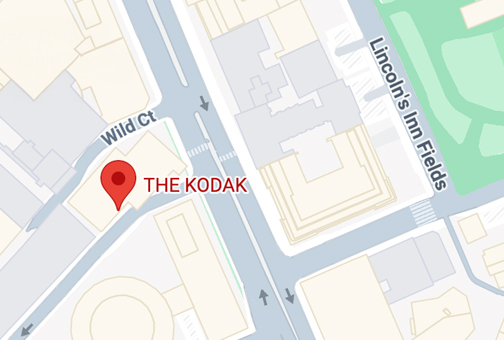
As audience intelligence and marketing effectiveness lead for Dentsu UK, it is Alison Drummond’s job to ensure that agency and client teams have access to the data, tools and insights that can fuel the development of marketing solutions and unlock growth for clients. Her approach is an instructive case of how to put consumer intelligence at the heart of everything an agency does.
Q. The sheer number of data suppliers out there is mind-boggling, so why did Dentsu chose UKOM-endorsed Ipsos iris, and why now?
There is an extraordinary amount of data in the world, but this can make it harder to extract meaning, creating an uneven landscape for clients, media agencies and media partners. Accountable, independent, gold standard data is vital and with Ipsos iris being the UKOM-governed source of online audience measurement data, subscribing was a no-brainer, coupled with the reassurance that it is being delivered by a research company with a wealth of expertise in media measurement. Access to more granular data about people’s online behaviours across PCs, smartphones and tablets via a single-source passive panel was also a driving factor in our decision to subscribe this year.
Q. Everyone has an opinion on digital audience measurement and what should be in the mix. What's the single most important factor for you?
The most important factor is having a robust, credible and future-facing methodology. There are many stumbling blocks on the path to successful data collection – lack of representation of the population/audience, inability to control the research, flaws in data collection, over-reliance on attribution modelling, reliance on cookies to track visitation etc – so as a purchaser and user of data, having a deep understanding of the methodology that is being employed is a top priority. Poor quality data leads to mistrust and misuse and can lead to poor decision-making.
Q. There's more depth and flexibility to the Ipsos iris data than was available via UKOM endorsed data in the past eg daily data, overnights, dayparts, granular geography, ethnicity, lifestyle and more. Are you using these new features yet and if so how have they improved your work for clients?
As relatively new subscribers we haven’t yet taken advantage of all of the new data points and attributes but we fully intend to. The ethnicity data is key to supporting our new DEI proposition – Dentsu Together – which enables brands to make more authentic connections with diverse and under-represented audiences. We’re also looking forward to using the new “Visitation Behaviour Targets” to understand visitation time spent by category for different audience segments.
Q. At UKOM we've spent time explaining that comparisons with previous data are unhelpful, that long-term past trend data isn't the key benefit of Ipsos iris. Are you comfortable that the arrival of Ipsos iris in 2021 marked year zero, a reboot?
There is always a trade-off between data continuity and innovation. Whilst trend data is undeniably valuable, continuity – even with the same data provider – can be challenging over time. Methodologies need to adapt to take advantage of new technologies, media fragmentation and consumer preferences, so I am comfortable working with year zero data and using other resources if I need to look back over time.
Q. Media owner tagging boosts the depth and breadth of data available in Ipsos iris. As an agency with close links to publishers and platforms, how would you persuade even more of them to make tagging a top and ongoing priority?
It’s essential that we have access to independent audience data for digital planning and activation. I would encourage our media partners to make tagging an ongoing priority so that we can be confident that Ipsos iris gives us a complete view of the UK landscape.
Q. Looking to the future, and imagining no constraints, how would you like to see online audience measurement evolve in the UK?
I think the most important aspect for Ipsos iris moving forwards is to keep pace with new and emerging platforms and behaviours. Our teams are also keen to see more video information. I fully appreciate the cost and complexity involved in maintaining such a sophisticated panel but would love to see the Ipsos iris panel expand over time to ensure that the data is as robust and actionable as it can be, even more connected with other datasets and even more representative of people from all walks of life.
Q. Is it important to have an audience measurement solution that is tailored to the UK's unique situation?
Whilst having a robust view of the complex UK digital marketplace is hugely important, we work with many global clients at Dentsu, so I am finding that cross-market comparisons are increasingly in demand.
Q. With a single source multi-device panel, Ipsos iris is more interoperable with other data sets, including PAMCo and IPA Touchpoints. Would you consider integrating iris with your own proprietary systems?
Yes, definitely. At Dentsu we have CCS (Consumer Connection System) as our proprietary data asset across 70 markets. This provides valuable data about people’s pastimes, passions, demographics, attitudes, motivations and behaviours and fuels strategic ideation and channel planning recommendations. CCS is an ecosystem of connected panel data, custom client surveys and integrations with other datasets including IPA Touchpoints and BARB. An integration between CCS and Ipsos iris could provide a deeper understanding of digital behaviours for audiences that are defined using CCS.
Q. UKOM data from Ipsos iris feeds PAMCo with the online element of audience measurement for published media. Is this combined data set valuable to your agency?
Print is still an effective channel due to its ability to offer targetted solutions that speak to certain audiences, but today’s planner requires an understanding of the full print landscape, so both offline versions but also digital formats. PAMCo provides unique measurement for all formats along with the duplication between print and digital readership and has been a huge step forwards for our industry. I would encourage more cross-measurement collaborations of this nature and more joined-up thinking.
Q. As a reward for answering these dastardly questions, we're moving you to zero online presence for a month. What do you switch back on first and why?
I would definitely suffer from FOMO. The first thing I would switch back on is Life360 so that I can continue to stalk my teenage sons and check they are where they are supposed to be! This would be closely followed by the BBC News site and Google Maps to enable me to perform my duties as a mum taxi!










